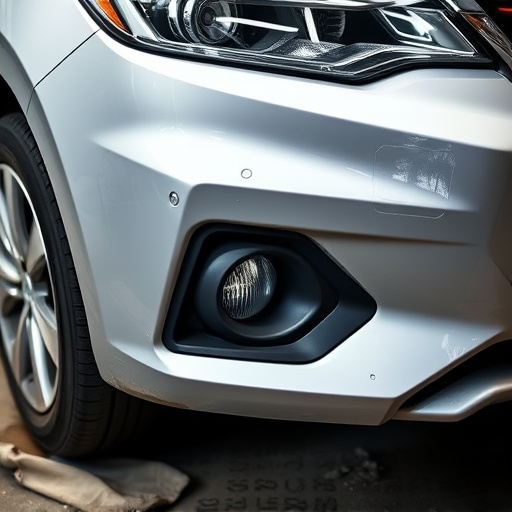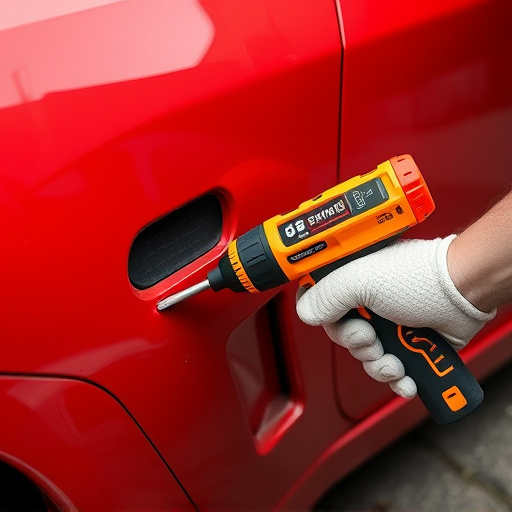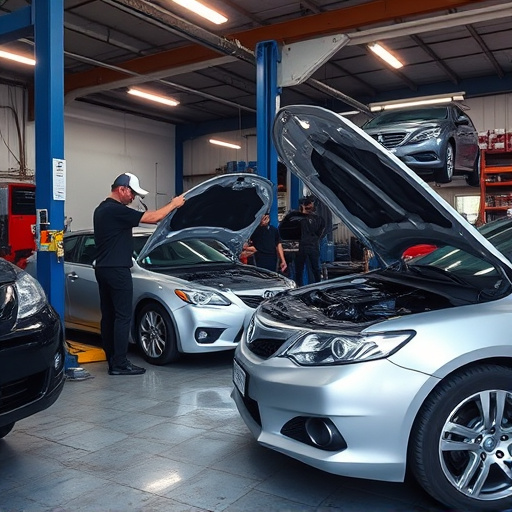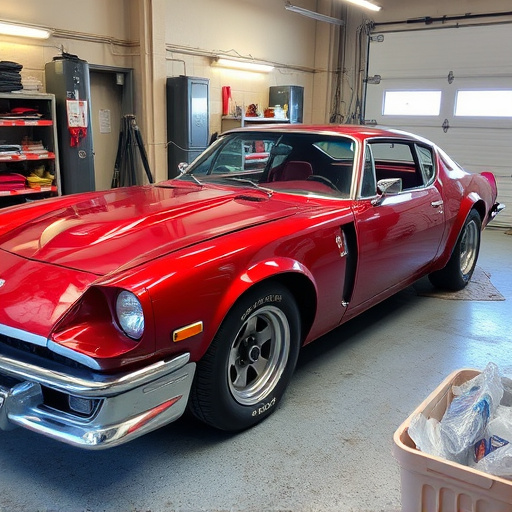Auto glass safety standards are essential for vehicle security, protecting occupants and reducing accident risks. These regulations govern material and testing processes, ensuring strength, impact resistance, and clarity. Strict standards have advanced repair techniques like paintless dent repair, making vehicles safer and more reliable. They contribute to component longevity, enhancing road safety and reducing replacements. Governments implement these standards for consumer protection, boosting road safety and shop-consumer trust.
In today’s world, where safety is paramount, understanding the significance of strict glass safety rules is indispensable. This article explores the multifaceted benefits of auto glass safety standards, focusing on enhanced protection, hazard prevention, and consumer empowerment. From preventing accidents to safeguarding lives, these regulations play a pivotal role in making our roads safer. By delving into key areas like improving auto glass quality and addressing potential risks, we uncover why robust glass regulations are a game-changer for all road users.
- Enhancing Safety: The Role of Auto Glass Standards
- Preventing Hazards: Strict Rules and Their Impact
- Consumer Protection: Benefits of Robust Glass Regulations
Enhancing Safety: The Role of Auto Glass Standards

Auto glass safety standards play a pivotal role in enhancing the overall security of vehicles, offering protection against unexpected hazards on the road. These stringent regulations ensure that auto glass products meet specific criteria for strength, impact resistance, and clarity, significantly reducing the risk of severe injuries or fatalities during accidents. By mandating high-quality materials and rigorous testing processes, these standards safeguard drivers, passengers, and other road users alike.
In today’s fast-paced world, where vehicles are increasingly complex, auto glass safety standards remain a cornerstone for reliable vehicle performance. They encourage the use of advanced technologies in auto repair services, such as paintless dent repair techniques, ensuring that damaged glass can be repaired or replaced efficiently without compromising structural integrity. As seen in luxury brands like Mercedes Benz repair, adherence to these standards has revolutionized the industry, making vehicles safer and more dependable for everyday use.
Preventing Hazards: Strict Rules and Their Impact

Strict auto glass safety standards play a pivotal role in preventing hazards on the road, ensuring the well-being of drivers and passengers alike. These rules govern every aspect of windshield and window glass installation, from material quality to precise cutting and fitting. By enforcing these standards, potential risks associated with poor-quality or improperly installed glass are significantly mitigated. For instance, a cracked or loose windshield can obstruct the driver’s view, leading to dangerous collisions, which is why strict regulations demand robust materials and meticulous installation techniques.
Moreover, adhering to auto glass safety standards promotes the use of advanced technologies in collision repair. Techniques like paintless dent repair, for example, not only reduce vehicle repair times but also ensure minimal damage and a seamless finish. This, in turn, contributes to the overall safety and value of vehicles, as proper repairs extend the lifespan of critical components like windshields, reducing the need for frequent replacements and enhancing road safety.
Consumer Protection: Benefits of Robust Glass Regulations

When it comes to auto glass safety standards, robust regulations are a consumer’s best protector. These rules ensure that all glass components in vehicles meet stringent quality and safety criteria. This means that if your car needs tire services or autobody repairs, you can rest assured that the replacement parts, including windows and windshields, will be of superior strength and durability.
By implementing these auto glass safety standards, governments play a pivotal role in safeguarding drivers and passengers. Moreover, it fosters trust between consumers and auto repair shops, as businesses are held accountable for using genuine parts and adhering to industry best practices. This transparency not only enhances road safety but also encourages customers to seek timely maintenance, preventing minor issues from escalating into costly repairs.
In understanding the significance of auto glass safety standards, it’s clear that strict regulations are pivotal in enhancing vehicle safety, mitigating hazards, and safeguarding consumers. By adhering to these guidelines, manufacturers and repair shops ensure the integrity and durability of auto glass, preventing accidents and reducing the risk of severe injuries. The benefits extend to both drivers and passengers, fostering a safer motoring experience. Implementating and enforcing these strict rules is a game-changer in the automotive industry, reflecting a commitment to consumer protection and overall well-being on the roads.














